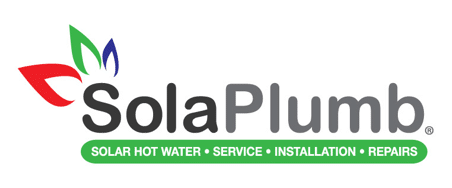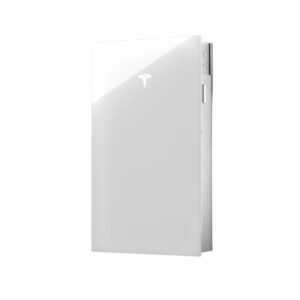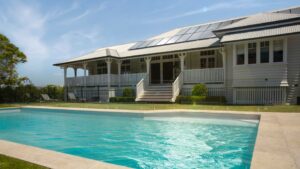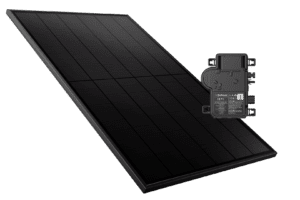Solar systems are renowned for their durability and low-maintenance requirements. However, like any significant investment, regular preventative solar maintenance helps ensure your solar panels continue to perform optimally for years to come. Here’s a guide to essential preventative maintenance practices that will keep your solar system operating efficiently and extend its lifespan.
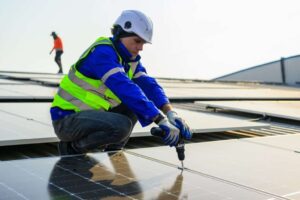
Why Preventative Maintenance Matters for Solar Systems
Solar panels are exposed to a variety of environmental elements throughout the year, including dirt, debris, wildlife, and extreme weather conditions. While high-quality solar panels are designed to withstand the elements, these factors can impact your system’s efficiency if left unaddressed. By incorporating regular preventative maintenance, you can:
- Maximise Energy Output: Keeping your panels free of debris ensures they can absorb sunlight effectively and maintain high energy production.
- Extend System Lifespan: Regular maintenance prevents minor issues from developing into costly repairs or replacements.
- Monitor and Protect Your Investment: Proactively identifying issues can reduce the risk of damage, safeguarding your long-term solar investment.
Key Preventative Maintenance Steps
1. Regular Cleaning
For solar panels to absorb maximum sunlight, it’s essential to keep their surface clear. Dust, leaves, and other debris can accumulate over time, particularly in dry or dusty areas. Panels with a tilt will naturally shed some debris when it rains, but during dry seasons, professional cleaning is recommended. Here’s what’s typically involved:
- Frequency: Solar panels should be professionally cleaned every 3-4 months, or more frequently in particularly dusty or dry conditions.
- Tools and Techniques: Professional cleaners use safe methods and gentle tools to clear debris without scratching or damaging your panels.
2. Watch for Animal Activity
Animals, especially birds and rodents, may find the space beneath your solar panels an ideal nesting spot. Nests and droppings can obstruct sunlight or cause damage to wiring. Regular inspections by a professional can detect any signs of animal activity, and solar critter guards can be installed if this becomes a recurring issue.
3. Monitor Energy Output
A sudden drop in energy production can signal that something is obstructing your panels or that a component needs attention. Many solar systems come with monitoring apps, allowing you to track daily and monthly energy output. Monitoring helps you identify issues early, so you can address them promptly and maintain efficiency. Any substantial dips in performance should prompt a professional inspection.
Common Seasonal Issues for Solar Systems
While solar panels are built to be resilient, each season brings unique conditions that can impact performance. Below are some typical issues to be aware of throughout the year, with a reminder that professional inspections are the safest way to ensure your system is functioning optimally.
Summer: High Temperatures and Overheating
In Queensland’s hot summers, temperatures can soar, which may slightly reduce solar panel efficiency. Panels are designed to withstand heat, but excessive temperatures can impact energy output. Ensuring panels have adequate airflow is essential to keeping them cool. If you notice any drops in performance, it’s a good idea to schedule a professional assessment to check for any heat-related issues.
Autumn: Leaf and Debris Accumulation
During autumn, falling leaves and other debris can collect around and beneath your panels, especially in windy conditions. This build-up can obstruct sunlight and reduce energy generation. Professional cleaning and inspection can help keep your panels clear and functioning at peak efficiency before the cooler months set in.
Winter: Reduced Sunlight and Weather Wear
Winter in Queensland brings shorter days and a reduction in peak sunlight hours, which can lead to slightly lower energy output. Additionally, cooler, wet weather can occasionally leave water stains or debris on panels, especially after heavy rains. Regular professional maintenance during winter can ensure that any minor issues are addressed early, preserving your system’s efficiency.
Spring: Dust and Pollen Build-Up
In spring, dust and pollen levels are typically higher, leading to a fine layer of particles that can accumulate on solar panels and impact sunlight absorption. A professional cleaning in spring will help your system get ready for the sunnier months, ensuring that your panels are free from debris and ready to perform at their best.
The Benefits of Preventative Maintenance
Preventative maintenance provides numerous benefits for both your solar system and your energy savings:
- Cost Savings: Routine maintenance helps prevent costly repairs by catching issues early.
- Energy Savings: Clean, efficient panels maximise the energy you generate, reducing your electricity bill.
- System Longevity: With regular care, your panels can continue to generate power efficiently for 25 years or more.
DIY vs. Professional Maintenance
While some aspects of solar maintenance, such as monitoring energy output, can be handled by most homeowners, cleaning and inspections are best left to professionals. Professional technicians have the right tools and knowledge to clean and inspect your system safely and effectively, ensuring your investment is well-protected.
